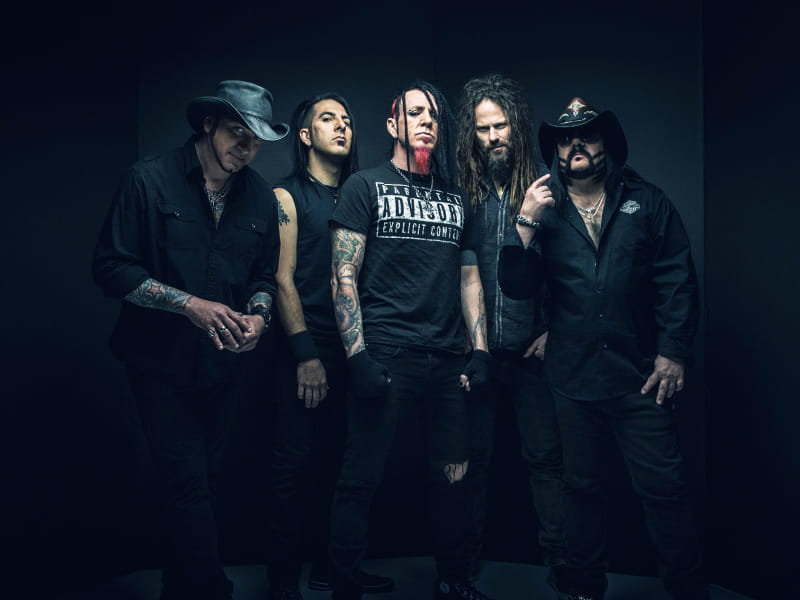Drummer's death inspires grief-stricken bandmates to rethink rock 'n' roll lifestyle
By American Heart Association News

When the members of the hard rock band Hellyeah walked onstage for their first show in more than a year, everything looked different.
The most glaring change was the absence of famed drummer Vinnie Paul Abbott, who died suddenly in June 2018 at age 54 from severe coronary artery disease and a disease of the heart muscle called dilated cardiomyopathy.
A more subtle difference was happening where fans couldn't see it, inside the musicians' heads. Once famous for their hard drinking and hell-raising, the members of Hellyeah had gained a new perspective on the rock 'n' roll lifestyle.
"Vinnie's passing was a wake-up call for us all," said Hellyeah guitarist Tom Maxwell. "I really sat back and looked at my mortality and said, 'You know what? I've got to quit smoking and exercise more and stop eating garbage.' I have a little boy who needs his dad. I have a wife who needs her husband."
Titled "A Celebration of the Life of Vinnie Paul," the concert took place at the House of Blues in Las Vegas, Abbott's adopted hometown, which officially declared May 11 "Vinnie Paul Day." A portion of the concert's ticket sales that day benefited the American Heart Association.
Hellyeah bassist Kyle Sanders said Abbott's sudden death made him "reassess everything."
"Everyone can make some kind of change for the better," he said. "It's never too late."
Abbott came to fame in the early '90s as the lightning-fast drummer of Pantera, the Dallas-based metal quartet that earned four Grammy nominations, sold millions of albums and packed arenas worldwide.
When Pantera broke up in 2003, Abbott and his guitar-playing brother, Dimebag Darrell, promptly formed a new band, Damageplan. But tragedy struck a year later when "Dime" was shot and killed onstage by an audience member during a concert in Columbus, Ohio.
Maxwell said he believes the shooting caused Abbott to develop post-traumatic stress disorder, which studies have shown to be a risk factor for cardiovascular disease.
"He had night terrors about what happened," Maxwell said. "For a while, he went inside his shell and drank heavily and put on weight. When Hellyeah came along, it really helped him, but he still suffered greatly. He couldn't get over the loss of his brother."
Maxwell said Abbott took blood pressure medicine and checked his heart rate, but rarely visited a doctor's office.
"He was fearful of dying, but he wasn't diligent about going to the doctor," Maxwell said. "If he would've just gone in and got checked out thoroughly, it could have made all the difference. He could still be with us right now."
Hellyeah has recruited a new drummer, Roy Mayorga, and will launch a tour later this year, with a portion of the proceeds going to the AHA. But Maxwell said Abbott is irreplaceable – both as a drummer and a friend.
"Vinnie pioneered the sound of hard rock metal drumming," he said. "He's up there with John Bonham, Keith Moon and all of the greats.
"He was so generous and positive and giving. He was like Santa Claus. It wasn't about him. … He wanted everybody around him to have a good time."
Before his death, Abbott recorded the drum parts for songs that now make up Welcome Home, a new Hellyeah album coming out in September. The band pays tribute to Abbott in "Skyy & Water" with the words, "Choking back my tears again today, I can hear your voice / I can hear you say, 'Don't sweat the small stuff and just keep on keeping on.'"
Sadly, those lyrics carry a double meaning.
While Abbott didn't worry about little things, he also didn't take one small step – scheduling a checkup that possibly could have kept him alive, Maxwell said.
"I'd love to go back a couple of years and motivate him to get his heart checked out and motivate him to cut back a bit on his eating and drinking," he said. "We miss him greatly. Our lives are never going to be the same without him."
Stories From the Heart chronicles the inspiring journeys of heart disease and stroke survivors, caregivers and advocates.
If you have questions or comments about this story, please email [email protected].





